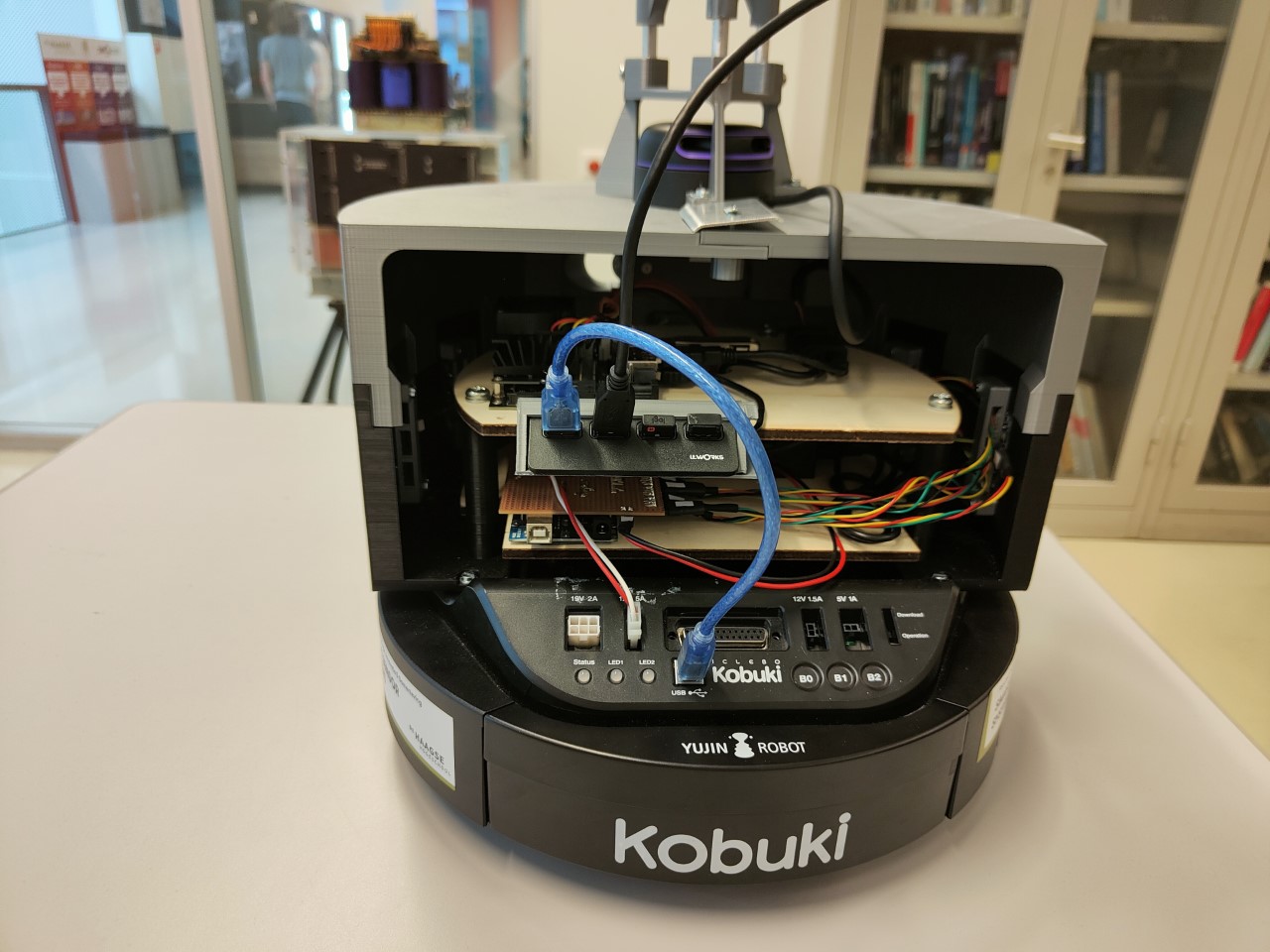Deploying robot technology in the cleaning industry
In the cleaning industry, the work pressure is high and the work is physically demanding. One solution is to deploy cleaning robots.
Centre of Expertise Digital Operations & Finance

In the cleaning industry, the work pressure is high and the work is physically demanding. One solution is to deploy cleaning robots. But cleaning organisations are still unsure how these robots can be used efficiently. They are often too slow and only good for cleaning floors of large open spaces. The Assisted Cleaning Robots (ACR) project focuses on how robot technology can be integrated into the work process in the cleaning industry. How humans and technology can work well together is the key element. The Research Group Sensor Systems at the Digital Operations & Finance centre of expertise is developing 'semantic mapping' within the project, which will allow a cleaning robot to navigate quickly and reliably in an environment with obstacles, detect waste and transmit this information to the user in a comprehensible manner.
Project objective
The objective of the project is to get answers to the research question: “How do you integrate robot technology into the work process in the cleaning industry, so that a robot supports the work process as optimally as possible on the one hand, and cooperates with humans as optimally as possible on the other?”
To this end, the existing cleaning process is mapped out, serving as a basis for the preparation of use cases, business cases and process descriptions. The Hague University of Applied Sciences is involved in developing and improving robots to work within this process. Experiments in practical situations validate and improve the process.
Research
A broad research consortium consisting of various disciplines from education, research and professional practice designs an appropriate solution to the research question, using process development and engineering methodologies.
The Research Group Smart Sensor Systems research group at The Hague University of Applied Sciences develops 'semantic mapping' techniques based on the latest technological developments in sensors and perception (converting sensor data into information). The research focuses on determining the type of sensors, their location and the algorithms needed for data processing. It also examines how to identify obstacles. To this end, it looks at the application of deep learning techniques based on, for example, camera data.
Collaboration partners
In this project, Fontys University of Applied Sciences of Engineering, Fontys University of Applied Sciences of Technology & Logistics and The Hague University of Applied Sciences are working together with cleaning organisations CSU and Hectas, suppliers of cleaning robots, developers, national partnership Holland Robotics and industry association Schoonmakend Nederland.
Intended duration of the project
This project has a duration of two years and started on 1 April 2022.
Degree programmes involved
Funding
The project was funded by a RAAK SME grant from the SIA initiative (part of NWO).
Work package leader
Rufus Fraanje, [email protected]
Team
- Dr John Bolte, Lector Smart Sensor Systems
- Xavier van Rijnsoever, lecturer-researcher
- Fidelis Theinert, lecturer-researcher